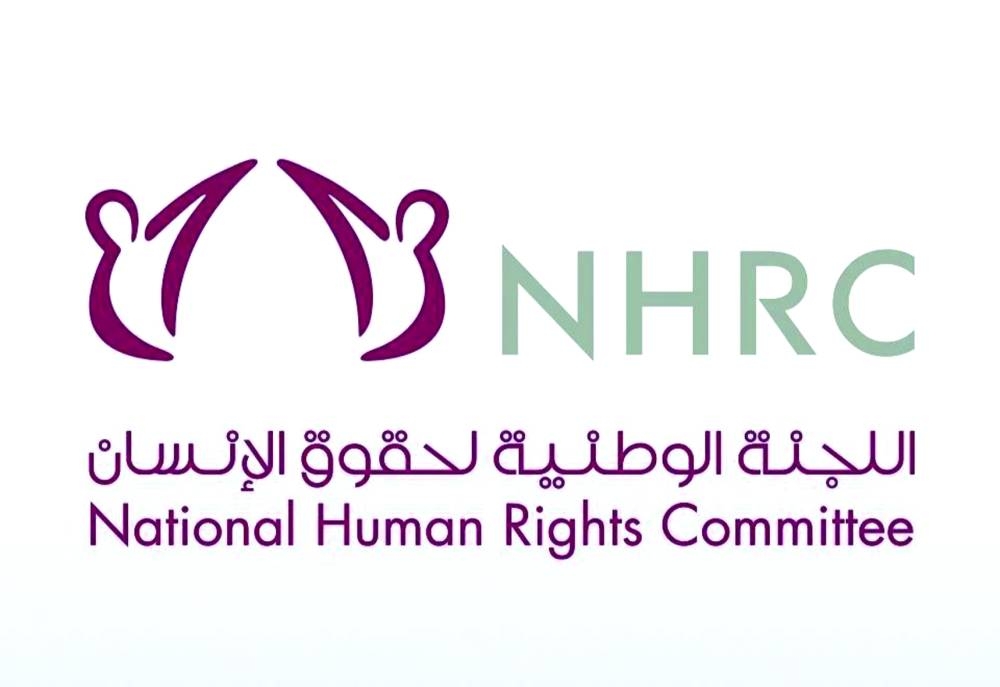The National Human Rights Committee (NHRC) Tuesday participated in a webinar titled 'Respecting and Upholding the Rights of People with Autism: National Human Rights Institutions (NHRIs) perspective'. The event was organized by Oman Human Rights Commission in collaboration with the Asia-Pacific Forum via Zoom application to mark the World Autism Awareness Day 2024.
Addressing the webinar, HE Chairperson of the NHRC and GANHRI Maryam bint Abdullah al-Attiyah affirmed that humanity is passing through a critical period of scientific and technological evolution in the third decade of the 21st century, however, the world is still oblivious to the autism disease amid the unprecedented mounting cases of autism worldwide, prompting a larger role in upgrading the recognition of the rights of People with Autism Spectrum Disorder (ASD) that dramatically affects nearly 70mn people worldwide.
HE al-Attiyah highlighted that based on the estimations of the World Health Organization (WHO), one in every 160 children suffers from ASD, along with 1 or 2% of the total population suffer from ASD. She emphasized that these facts and plight have triggered numerous governmental and non-governmental institutions to operate in elevating the awareness about autism, noting that communities, in general, are increasingly aware of this disease and the importance of early detection so as to provide early intervention programs for training, education and support, given the increasing demand for enforcing the criteria that underscore equal opportunities and respecting the wide range of abilities, diversity and full engagement in the community.
Although most of the world countries have joined the Convention on the Rights of Persons with Disabilities (CRPD), but the needs of the people with ASD, along with their economic and social rights received uneven response, as per abilities of each country, HE al-Attiyah pointed out, indicating that stemming from the need for developing the interest in persons with disabilities (PWDs), the Working Group on the Rights of PWDs was established at the GANHRI Bureau meeting held in Marrakech, Morocco in October 2018.
She stressed that the rights of PWDs are of foremost priorities in the GANHRI's current strategic plan, as well as the tripartite partnership between the UN Development Programme (UNDP), GANHRI and Office of the UN High Commissioner for Human Rights.
HE al-Attiyah called for thinking about people with ASD in the poor countries, as well as conflict and war-stricken countries, especially in light of the stigma and discrimination that afflict autism worldwide, along with the increasing challenges in countries that are beset by intricate situation or bereft of political and social stability, given the lack of data collection and autism-related research, in addition to the deterioration of the essential services and support.
HE Chairperson of the NHRC and GANHRI Maryam bint Abdullah al-Attiyah reiterated the call on all parties and stakeholders to respect the CRPD and keep upgrading the awareness to formulate a superb framework for all countries whatever their situation is, highlighting that talk about respecting the convention, in question, should not be stopped, as all parties must provide everything possible for PWDs, such as morality and material.
She pointed out that the NHRIs-led role entails the respect of PWDs rights through altering the policies and engaging with the policymakers so as to urge them to enact the legislations that promote the rights and well-being of people with ASD, such as protection from violence and anti-discrimination laws, funding for support services, as well as policies that promote inclusive health, education, employment practices and community's engagement in each country based on its economic capabilities.
HE al-Attiyah elucidated that the NHRIs and the civil society organisations are striving to put the segments that need care among the foremost priorities to ensure that they are not left behind. The webinar program included a range of themes, such as the significance of being aware of autism disease and its spectrums, the social consequences on the people with ASD and their families, with another theme tackling the rights of PWDs set out in the international laws, primarily the CRPD and challenges, alongside the theme of the best practices required to protect and promote the rights of people with ASD.
The virtual webinar was intended to be a platform for NHRIs to share knowledge and best practices pertinent to the protection and promotion of people with ASD to ensure high-quality life. The webinar discussed the shared challenges and future orientations. It was aimed at raising the awareness and interaction with respect to the significance of the societal support for strengthening inclusiveness and accessibility.

